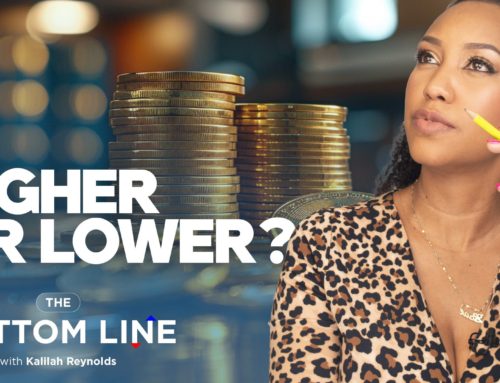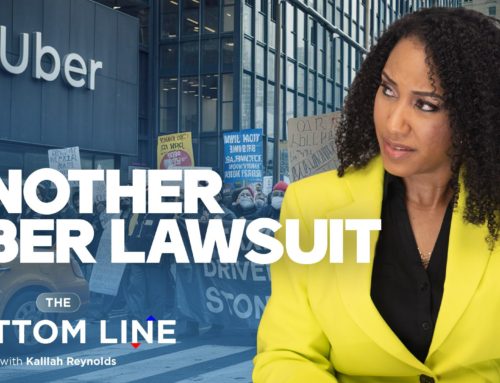
#MoneyMondaysJa – How to Make More Money with Dividends
Chi Ching! What’s that? That’s the sound of dividends hitting your bank account. There are two reasons people invest in stocks. One is for increases in the stock price and the other is for dividends.
So what are dividends and how do they work?
A dividend is a payment made to a shareholder of a company out of the company’s profits. A company can distribute its profits to shareholders or reinvest it into the company. At the end of a company’s financial quarter or year, the directors meet to decide if the profits should be reinvested into the company or distributed to shareholders.
The dividend policy
Some companies let you know what to expect through their dividend policy. The dividend policy tells investors how the company plans to treat future profits. For example, in Tropical Battery’s Prospectus recently, their dividend policy stated that if the Company has profits available for distribution, they will first consider if the profit should be used to finance working capital, or if it should be kept in reserve. If there is no need for extra working capital or for cash reserves, only then will the company distribute up to half of its profits to shareholders as dividends.
Declaring a dividend
When the directors decide to distribute dividends, a notice is posted on the Jamaica Stock Exchange. The notice tells when the Board of Directors met and approved the dividend, the amount of dividends per share, the record date, the ex-dividend date and the date on which the dividend will be paid.
The record date is the date by which your name should be in the company’s shareholders’ register. This is pretty similar to the register that teachers used to mark if you were present or absent at school. If you want your name to be in the register, you must purchase the stock in time for the transaction to be settled.
Settlement time
On the Jamaica Stock Exchange, the time for settlement of transactions is the trade date plus two days, also called T+2. If you purchase the stock after this date, you will be exed out of receiving a dividend-otherwise known as the ex-dividend date. Investors who owned the stock before the ex-dividend date would receive the dividend declared before this ex-dividend date.
Now for the amount of dividend per share

The amount of dividend per share tells you how much dividends you will get for each share you own. For example, TransJamaican Highway Limited (TJH) declared an interim dividend of $0.0748, call it 7 1/2 cents. That’s a tiny fraction of 1 US cent.
If you owned one-million TJH shares, you would get a gross dividend payment of J$74,800 ( about US$500).
The payment date for dividends is simple
It’s just the date on which cheques will be issued or cash deposited to your bank account.
How else can dividends be paid?
Dividends are not only paid out in cash. Some companies will decide to pay dividends by giving you more stock in the company, or in another company. This is what Seprod did the other day. They declared a two-part dividend on September 20, 2020. Seprod shareholders received a dividend of J$0.30 per share. They also received one share in Eppley Caribbean Property Fund – Value Fund for every five Seprod shares they owned. Interesting isn’t it?
Companies may choose to issue dividends in the form of stocks to keep cash in the company. With the uncertainty brought on by the Covid-19 pandemic, more companies will want to keep as much cash as they can to act as a buffer just in case the economy gets worse and revenues continue to go down.
Now, why are dividends so important?
Some investors choose to buy high dividend-paying stocks for the steady income they provide, regardless of the movement in the stock price. Companies like PROVEN Investments Limited, Carreras Limited, Scotia Group Jamaica Limited, and Supreme Ventures Limited are known to declare high dividends every three months, so dividends from these companies serve as a steady source of income for these investors. In the case of Carreras, which currently trades at around $6.50, the dividend will give an investor more than a 10% annual return on funds invested. This is called the dividend yield.

For example, if you bought 10,000 shares in Carreras today, you would pay about J$65,000 and you could expect to get about J$6,500-dollars a year in dividends – a dividend yield of 10%.
What happens if the stock price changes?
Well, you’d still get the same amount of dividends, because dividends are based on the profits the company makes – it has nothing to do with the stock price! So if Carreras stock price falls to $5.00 per share, and you owned 10,000 shares, you’d still get the same J$6,500-dollars in dividends. And if the stock price rises, same thing. Your dividends will stay the same. Don’t expect to get any extra based on the stock price.
If you’re investing for dividends, the number you should pay attention to is the company’s net profits. This is reported in their financial statements published on the Jamaica Stock Exchange’s website every three months.
What about the total gain from the stock?
Remember I spoke about the two ways to make money from stocks – stock price appreciation (that’s when the stock price goes up) and dividends. When you add these together, these are called your gains, or the profit that you made on your investment. So let’s say you bought 10,000 stocks in a company for J$1.00 a share last year – that would’ve cost you J$10,000. But the stock has gotten more popular over the past year. More people want it. So now it’s worth J$1.10 a share; the stock price has gone up 10%. So if you were to sell your stocks today, you’d get J$11,000. You would’ve made a $1000.00 in profit.
Now let’s add the dividends. Let’s say that same stock is also giving you a dividend yield of 7%. That’s an extra J$700.00 in profit. So you’ve actually made J$1,700.00 dollars in profit (or gains) from this stock. Your total gain is 17% (10% from the price going up, plus 7% from the dividend yield).
Here’s another cool thing about dividends
Dividend-paying stocks also help investors to take advantage of compounding.
What’s that? Compounding happens when you use your dividends to buy more shares in the company. More stocks result in more dividends and if you continue to reinvest dividends over several years, you will eventually begin receiving large dividends, while also compounding your total gains.
Think of it this way, if you set a target of having J$1 million in dividend stocks, that dividend income can cover most people’s light bill for life. The dividends from J$10 million could cover most mortgage payments, and once your mortgage is paid off, you’d have free income flowing. Or as I like to say, you just siddong and collect! This is what we call passive income.
So are you seeking out dividend stocks? If yes, what for? A steady income, or are you trying to become the next Warren Buffet and earn billions annually from dividends? What are your favourite dividend-paying stocks? Let me know in the comments.










Leave A Comment